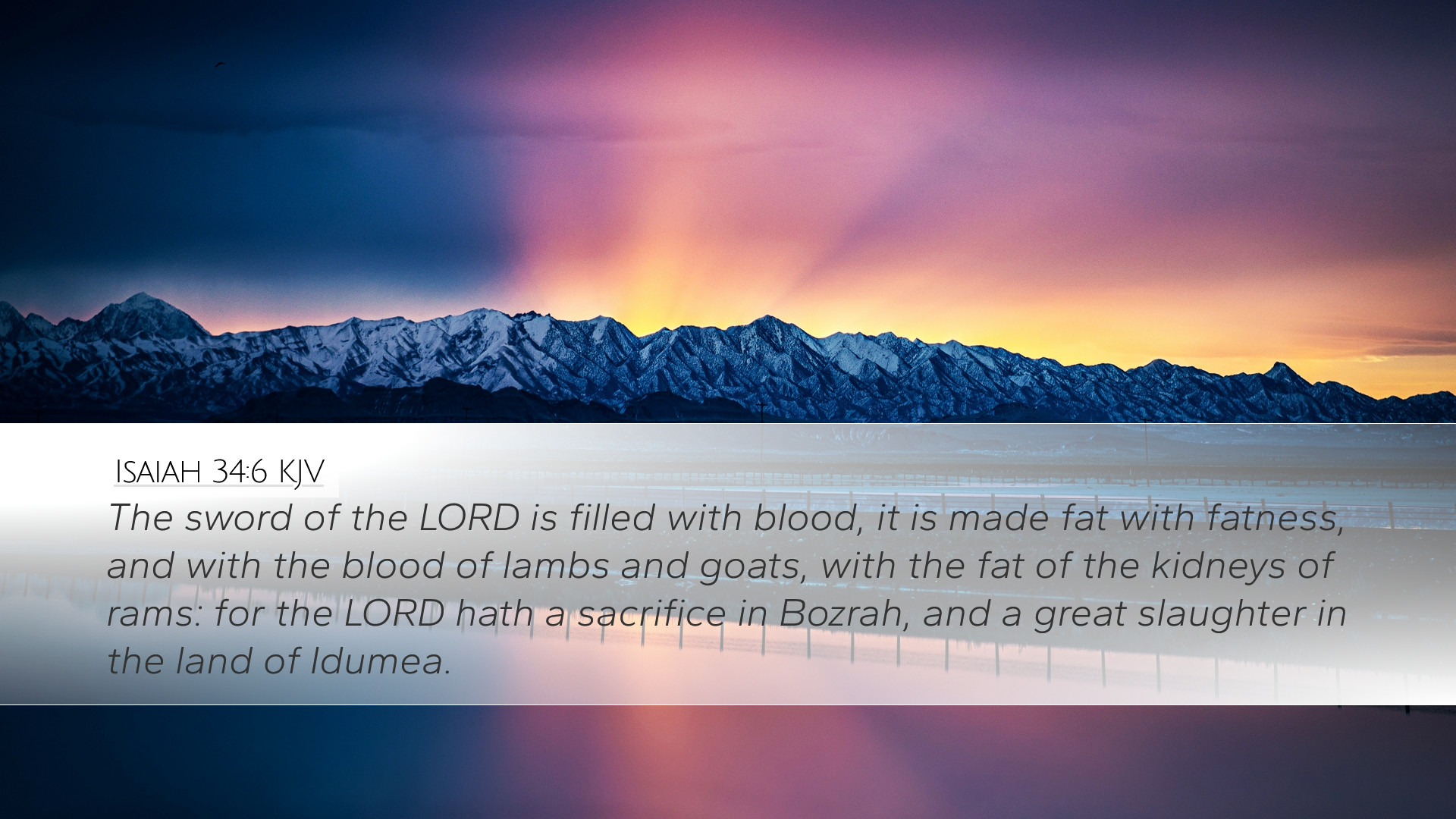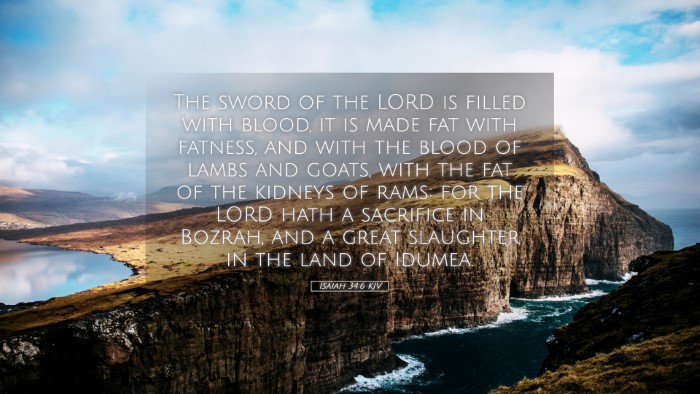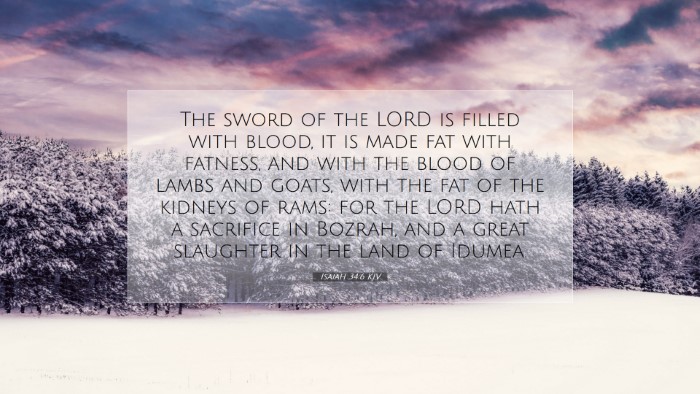Commentary on Isaiah 34:6
Verse: "The sword of the Lord is filled with blood, it is made fat with fatness, and with the blood of lambs and goats, with the fat of the kidneys of rams: for the Lord hath a sacrifice in Bozrah, and a great slaughter in the land of Idumea."
Introduction
This verse from Isaiah presents a vivid and potent image of God's judgment upon the nations, particularly focusing on Edom (Idumea). Commentators emphasize various aspects of the passage, including the severity of divine wrath, the symbolic nature of sacrifices, and the ultimate purpose behind such judgments. The implications of these judgments serve as both a warning and a source of hope to the faithful.
Theological Insights
Divine Judgment
The phrase "the sword of the Lord" signifies God's active engagement in judgment against sin and rebellion. Matthew Henry reflects that this portrays the intensity of divine retribution. God's sword is not merely a metaphor of judgment but also indicates the inevitable consequences of disobedience.
The Sacrifice Imagery
Albert Barnes notes the richness of sacrificial language utilized in this verse. The mention of "blood," "lambs," "goats," and "rams" suggests a powerful, albeit grim, picture of atonement and retribution. Such imagery indicates God’s holiness and righteousness—showing that sin requires a serious response.
Bozrah and Idumea
Adam Clarke highlights that Bozrah, a key city in Edom, symbolizes a focal point of divine judgment. The choice of this geographic location is significant, indicating that God's judgment is thoroughly encompassing and pointed. The subsequent reference to Idumea relates to the broader scope of God’s wrath upon nations that oppose Him.
Symbolism of Blood and Sacrifice
The use of sacrificial language invites interpretations related to the covenant and the sacrificial system established in the Hebrew scriptures. Blood is significant in atonement narratives throughout scripture, emphasizing that God has ordained a means by which sin is acknowledged and addressed.
Henry elaborates on this by suggesting that the blood's abundance serves as an allegory for the grievous nature of the impending judgment. It points to the holiness of God, necessitating that sin must be dealt with most seriously, often requiring bloodshed—a consistent theme in the sacrificial laws laid out in the Pentateuch.
Implications for the Faithful
For pastors and theologians, this verse serves as a reminder of God's justice and His unwavering stance against unrighteousness. It highlights the importance of faithful living in accordance with God’s commandments. Barnes points to the contrast present in God’s judgment: while Edom faces destruction, the faithful remnant can find solace in knowing that God is a refuge for those who follow Him.
Pastoral Application
In delivering sermons based on this passage, it could be effectively utilized to convey the seriousness of sin and the need for genuine repentance. Emphasizing the nature of God as both just and merciful can provide a balanced perspective that encourages congregations to seek reconciliation with God through Christ, who is the ultimate sacrifice.
Conclusion
Isaiah 34:6 offers a profound insight into the character of God, especially His nature as judge and savior. By reflecting on the themes of divine wrath and the symbolism of sacrifice, believers are called to recognize the seriousness of sin while rejoicing in the hope of redemption. As we ponder the fierce imagery presented, let us also reflect on how the God of judgment is the same God who extends grace to those who turn to Him.


